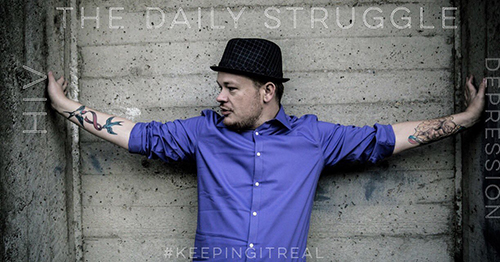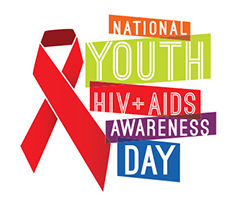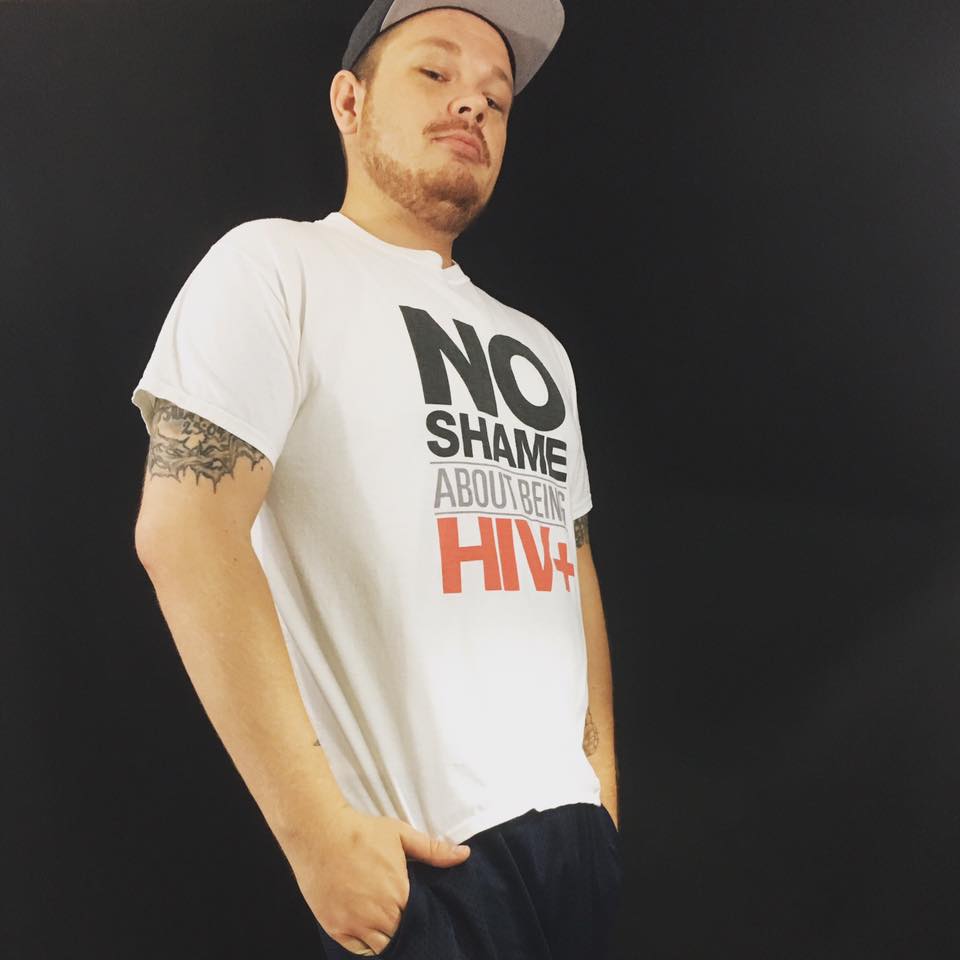
Joshua Middleton (Photo courtesy of Twitter)
Joshua Middleton was 22 when he was diagnosed with HIV on June 5, 2012, during what he refers to as the prime of his life. As a non-injection drug user, non-promiscuous heterosexual, contracting HIV was the least of his worries. “After all, ‘HIV wasn’t something that happened to someone like me but to someone else,’ I told myself, right?” he says.
 In 2014, 13−24-year-olds accounted for about 22% of new HIV diagnoses in the United States, according to the Centers for Disease Control and Prevention. Most occurred among young gay and bisexual males. Middleton, however, believes he contracted HIV through heterosexual sex.
In 2014, 13−24-year-olds accounted for about 22% of new HIV diagnoses in the United States, according to the Centers for Disease Control and Prevention. Most occurred among young gay and bisexual males. Middleton, however, believes he contracted HIV through heterosexual sex.
In observance of National Youth HIV & AIDS Awareness Day on April 10, we spoke to Middleton, now 27, of Murrieta, CA, about coping in the aftermath of diagnosis, combating HIV stereotypes, and raising awareness among youth.
You describe the moment you learned you had HIV like getting hit by “a ton of bricks.” What helped you cope in the immediate aftermath?
I was in a state of shock. It didn’t really hit me until a couple of minutes after the doctor told me. I had enough information on HIV to know I wasn’t going to die from it. The doctor reiterated that. I was more concerned with stigma. I thought about my life and some of the things I had been through. I had survived necrotizing fasciitis (a flesh-eating disease), septic shock, and multiple hospitalizations. I was in the ICU for three weeks. Being so close to death it really made me think to myself, ‘Hey, you have been through something way worse. You can get through this too.’ I began by building a support network, which included joining an online support group and speaking with HIV advocates. I also educated myself. I knew a little bit about HIV, but I wanted to know everything about HIV because it was now personally affecting me.
You were also really open about your diagnosis from the beginning. What made you decide to disclose openly and honestly, especially so soon?
I think it was kind of a gunshot reaction. I didn’t really think too much. I am someone who carries my emotions on my shoulders. I was hesitant to tell my parents, but it was too big of a thing. I knew the feelings I was going through, how bad it was hitting me, and this was just the first day. I didn’t understand the exact ramifications of what it was like to live with HIV. I just knew it was pretty heavy, and I didn’t know if I was going to be able to carry that burden alone.
My goal is to raise awareness around HIV and AIDS as a young, heterosexual male, not what would be considered high risk. I want people to open their eyes and realize a small amount of risk doesn’t equal no risk.What was the reaction from your parents? I know you also contacted your ex-girlfriend.
My parents were devastated. My mom and I cried for a couple of hours. She had a lot of questions. The first thing she asked me was, ‘Are you gay?’ I let her know that I was not gay. She wanted to know how I got it. As for my dad, he’s more introverted, but he gave me a big hug, let me know, ‘Hey we’re going to get through it together.’ When I told my ex-girlfriend—we had been broken up for five months—she let out a blood-wrenching scream. It was as if I had told her the whole world was ending. I said, ‘Look, I’m not telling you that you have it or that you gave it to me. I’m just saying I am HIV-positive, so you need to get tested.’ She thought I was going to die of AIDS. She got so upset she couldn’t talk anymore and dropped her phone. Her aunt picked it up and said, ‘Hey I’m going to take her to get tested, don’t worry.’ She was in a state of sheer terror. (Note: Joshua never heard from her after that.)
You wrote in an essay for POZ that you never thought you were at risk. How do we combat the continuing stereotype that HIV only affects certain people?
The heterosexual community needs to speak up and share their stories. I have had people in the POZ community say, ‘You must have slept with someone who is gay. You must have slept with a girl who slept with someone who is bi.’ Before I was diagnosed, the only person I had ever met who was HIV-positive was an older gay guy who spoke to my human sexuality class, and I couldn’t relate to his story. If I had a straight guy come into the room that day and say ‘Hey I’m living with HIV and I’m heterosexual,' it may have opened my eyes much more to say, ‘Hey this can happen to me.’
 Why do you think a disproportionate number of new HIV infections are occurring among youth?
Why do you think a disproportionate number of new HIV infections are occurring among youth?
Youth are under the impression that they are invincible—like I was. They need to hear from someone they can relate to. They need to put faces to information. You don’t want to make HIV seem like it’s a death sentence—for the majority of the world it isn’t. But at the same time, you don’t want to promote it like it’s a basket of roses. Living with HIV has emotional, physical, and social ramifications. It’s a delicate balance. There are also problems with our sex education system. In some schools, you can’t even say the word ‘condom.’ In fact, youth don’t have a lot of information just on the basics of HIV at least on a level they can understand. But also, parents aren’t talking to their kids about sex.
You do a lot of online activism through your blog Pozitive Hope, Facebook group, and YouTube channel. Who do you want to reach? And what do you hope to achieve?
I really want to touch people who have been diagnosed with HIV but are not yet at that level of acceptance. They are in the grieving process. Because to me that’s very critical to be able to help someone when they are in the darkest of times. My goal is to raise awareness around HIV and AIDS as a young, heterosexual male, not what would be considered high risk. I want people to open their eyes and realize a small amount of risk doesn’t equal no risk. And people really need to not get so caught up in the numbers but realize that HIV can happen to anyone.
Read more about Joshua here.
Check out his blog here.